Audio-visual (AV) professionals play a pivotal role in transforming how we communicate and interact with the world. From building interactive installations to designing innovative projection displays, these skilled individuals are responsible for bringing visual and auditory elements to life.
But how do AV professionals start their careers in the industry?
In this article, we delve into the remarkable journey of Brad Fehlberg, an AV expert and the current Head of Projects at Pro AV Solutions NSW. Read below to learn more about his apprenticeship journey, how he started and the valuable lessons that shaped his career.
“The AV industry is so unique and special to me because we are a trade. We share similarities with electrical and data-driven work, but we’re specialised. And I guess one of the biggest things around that is the technology in this industry is always progressing.”
How it all started
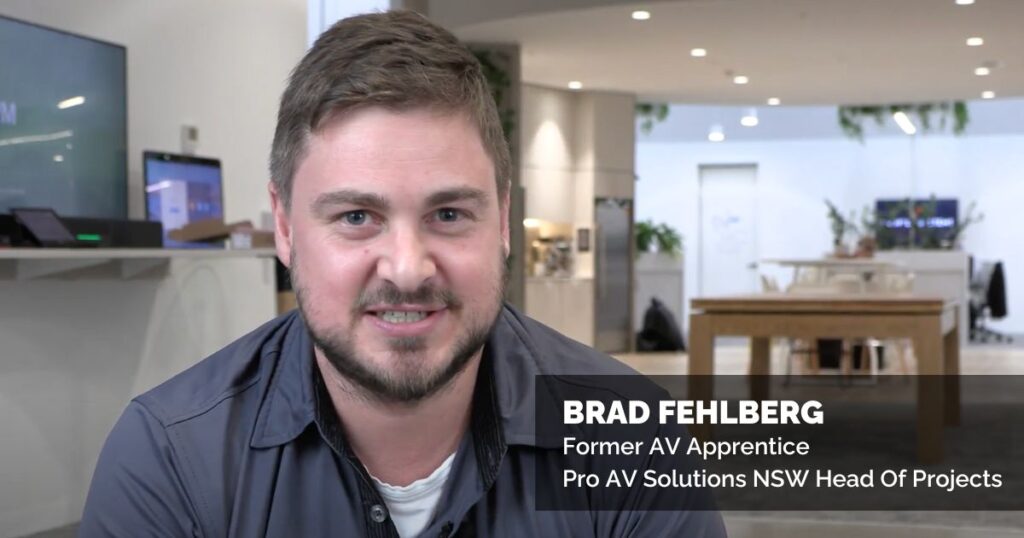
Brad’s interest in events, music and sounds started during his teenage years. Although he wasn’t knowledgeable about the AV industry then, he had already dreamt of becoming a professional musician or sound engineer.
“I wasn’t really too aware of the AV industry outside of live events, music and recording studios. I guess I wanted to be a sound engineer or a professional musician. But that’s a dream that most people have, and then they realise it’s a big thing and not that common.”
Attending various entertainment events further fueled his passion for the craft. But it was an inspiring conversation with an audio engineer that set the course for his career.
“We did an excursion to a live event. As soon as we got there, I had a good, robust conversation with an audio engineer. And his advice to me was to pursue a trade career path but not necessarily just going straight to being an engineer.”
Brad took that advice away and thought, “Okay, that’s interesting. How do I become a tradesperson but also have an interest in AV?”
So when his grandma found a newspaper ad about a trade assistant position, he immediately grabbed the opportunity. He worked as an assistant for six months, which eventually led to an apprenticeship program.
Brad was among the first three apprentices to enter the AV industry in 2006. He’s also the first one to complete the actual apprenticeship program and become the first qualified audio-visual technician.
Brad’s apprenticeship journey
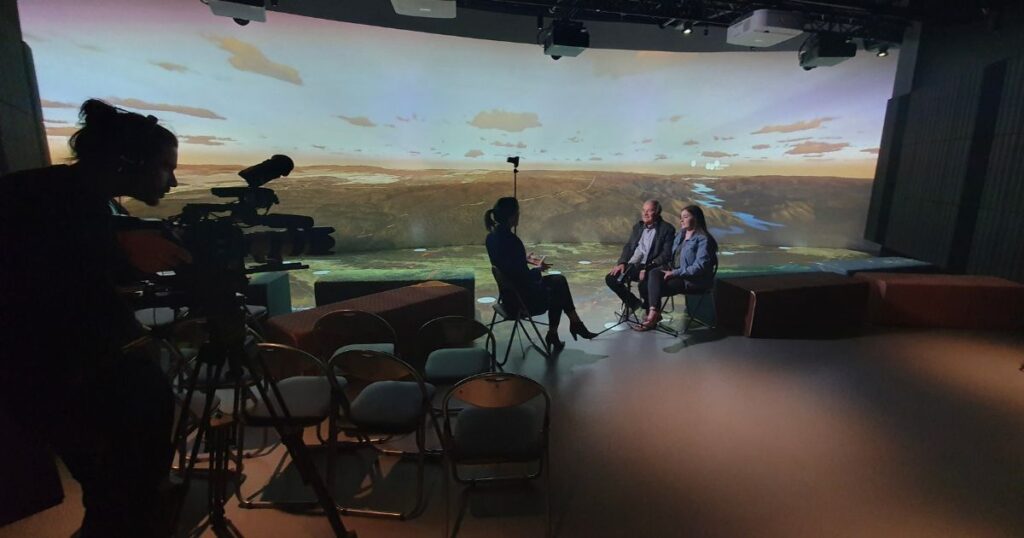
When asked about his AV apprenticeship journey, Brad shared that the first 12 months of the program were similar to the electrical apprenticeship program.
“The course I did was electronics and servicing, and out of that came an electronics and servicing trade certificate,” he explained.
“Then that’s when we broke out into the more electronic side of things. Learning about oscillation, amplifiers, digital electronics, and so on. That’s really where it separated.”
He also added that the year 3 mark was particularly exciting. It gave him the opportunity to delve deeper into specialty subjects focusing on AV technology.
The third year of the program is usually the phase where apprentices gain a more comprehensive understanding of the processes, software or techniques used in the industry. For instance, here at the Institute of AV Technology, apprentices start practical AV training and certified technology specialist (CTS) preparation during this time. They do hands-on training related to creating, operating and servicing AV solutions.
What career paths are available for aspiring AV apprentices
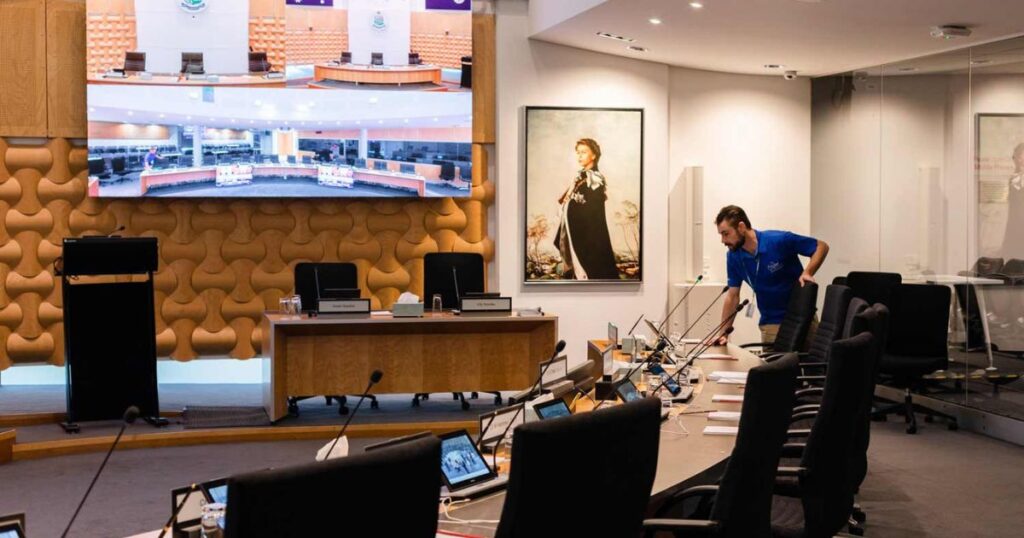
When it comes to career paths within the AV industry, Brad emphasised that apprentices have numerous avenues for progression and growth. Upon completing their apprenticeship, individuals may choose to become site managers or site supervisors, overseeing the execution of AV projects. While others might opt to focus on the engineering or technical aspects, delving into the intricacies of AV system design and implementation.
“I guess there are also other progressions you go down to. But that comes down to you as an individual and what your persona and interests are,” he added. “That can be things such as service where you’re focusing on seeing customers, where works are being completed and you’re maintaining that. It could also be things around engineering where you’re really more into the technical side of the AV.”
He’s also a firm believer that the beauty of the AV industry lies in its versatility. It offers individuals the opportunity to expand and evolve their careers based on their interests and aspirations.
“I guess the main thing around the AV industry is that it’s not just a single line. There are avenues and ways you can expand and grow your career to your interests.”
What makes the AV industry unique and special
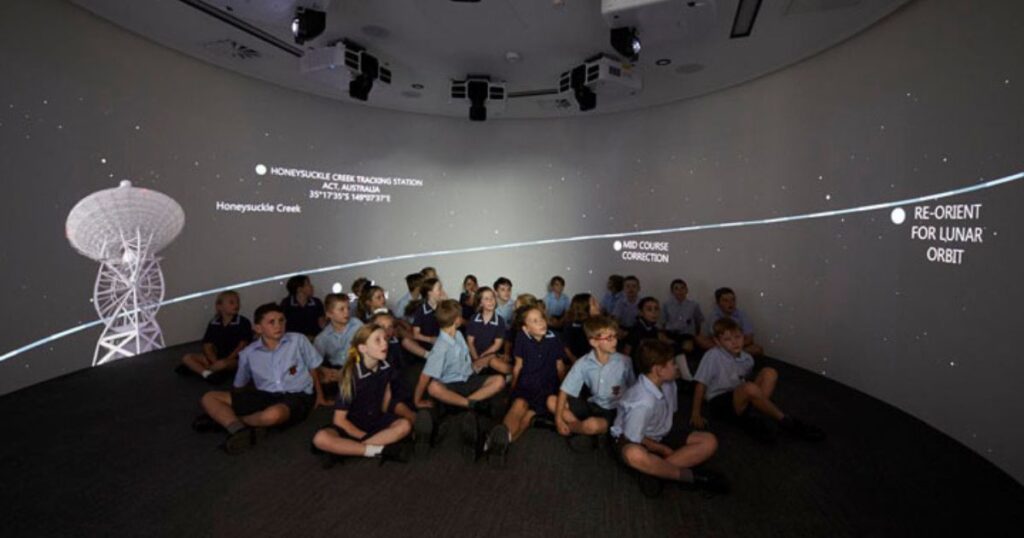
For Brad, the AV industry stands out due to its ever-evolving nature. He highlighted, “What we were doing five years ago, what we were doing three years ago, and even 12 months ago is not the same as it is today.” This constant innovation and progress in AV technology make the industry dynamic and exciting.
According to Brad, another important factor that distinguishes the AV industry is the emphasis placed on quality workmanship.
“It’s actually one of the main wow factors for our customers. They walk into their brand new office, they don’t get too excited about things like pipes or a PowerPoint on the wall,” Brad said. “But they see the big video wall, LED walls and projectors, and they go, “Wow, look at that.” And I think that’s one of the greatest things about this. You get a lot of job satisfaction with the end product.”
—
Are you ready to start a career in AV technology and learn from industry experts like Brad?
Be an Institute of AV Technology (IAVT) apprentice today and kickstart your future in the AV industry. Join our upcoming open day to learn more.



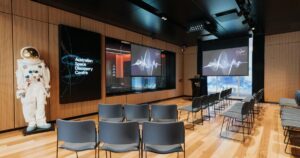
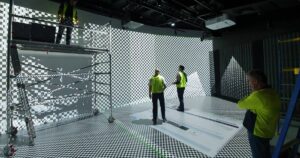

No comment yet, add your voice below!